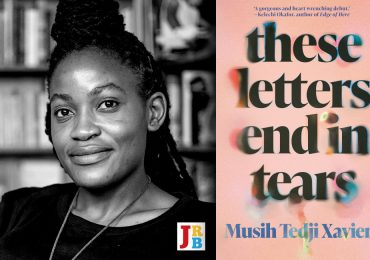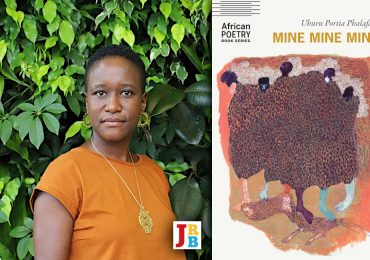The JRB Francophone and Contributing Editor Efemia Chela reviews Not One Day, Anne Garréta’s memoir and the second of her books to be translated into English.
Not One Day won the 2018 Albertine Prize, and was a finalist for both a Lambda Literary Award and the French-American Foundation Translation Prize.
 Not One Day
Not One Day
Anne Garréta (translated from the French by Emma Ramadan)
Deep Vellum, 2017
In Not One Day, Anne Garréta presents us with a memoir made up of recollections of women from her past, women she has either desired or who have desired her.
The book, originally published in French as Pas un jour in 2002, is an exciting prospect: many English-speaking fans of Garréta have long been curious about the reclusive author’s private life. In it, Garréta promises the reader faithfulness, to write every day and honestly. She later reveals she has lied and that one of the experiences recorded is fictional. But, sadly, by the time she makes her confession it has become difficult to remain invested in the the book, and impossible to drum up the interest needed to deduce which encounter the false one might have been.
There are interesting moments. At one stage, Garréta falls deeply in love with driving through the American landscape. In another chapter she becomes polygamous and considers adding another woman to the equation. In a separate recollection she shares a desire that was never born into reality and fantasises about both parties’ roles in what never happened.
Not One Day is classic Garréta in the sense that her lissom prose is on full display, as well as her propensity to be fabulously confrontational. She insists:
How we love to exaggerate the power of desire. So resistible, so often. How many times have we truly, savagely, imperatively desired a body? Consider this question, reader, forget your heart’s outpourings, your head’s effervescence, your surges of vanity: how many times have you felt a desire that struck at your marrow?
The blank spaces in Not One Day and the lack of detail in some of the recollections allow the reader to project themselves and their own fantasies on to the book for a while. But it is not long before we become bored of the empty soundstage, loitering on the black floor with its white dashes of chalk marks, our minds hungry for a fully decorated set. Isn’t it central to queer culture to pick up on anything even remotely gay (think Dick Grayson and John Wayne in the original Batman comics) and, like a child with a glass to the wall, wait, hoping to hear the sounds of sexual exploits one isn’t ready or able to perform?
Not One Day is disappointing precisely because Sphinx, Garréta’s 1986 novel, was the opposite. Sphinx was a book of many firsts. It marked Garréta as the first writer to be born after the creation of the secretive French writing society Oulipo to be invited to join (the Ouvroir de littérature potentielle, roughly translated as ‘the workshop of potential literary futures’, is a society in which members create playful works through mathematically constrained writing techniques, finding freedom in language). Garréta was also the collective’s first woman member.
Sphinx, a novel of infatuation, grief and interracial love played out over nightclub beats and reeling nights, focuses on a narrator whose gender is never revealed. It was the first novel that on a syntactic level conceived of love outside the gender binary, indeed in the absence of gender itself. It is a powerful novel that displays Garréta’s talent for throwing off the tyranny of language and expressing deep feeling. The narrative is shrouded in mystery and the pages ripple with the double-headed monster of desire:
I have in my mouth, still, the taste of skin, of the sweat on that skin; against my hands, the tactile impression of skin and the shape of that flesh … Crotches crossed and sexes mixed, I no longer knew how to distinguish anything.
and despair:
Languid nights at the whim of syncopated rhythms and fleeting pulses; the road to hell was lit with pale lanterns; the bottom of the abyss drew closer indefinitely; I moved through the smooth insides of a whirlwind and gazed at deformed images of ecstatic bodies in the slow, hoarse death rattle of tortured flesh.
The failings of Not One Day are echoed in Chris Kraus’s cult feminist work I Love Dick. Kraus, thirty-nine at the time, admits early on in the book that she hasn’t felt aroused in seven years, and describes desire as a ‘painful elemental state’. She has been in a relationship with her husband, the noted French intellectual Sylvère Lotringer, for many years, and their disparity in age (he is fifty-six) is not what is responsible for the lack of sex and intimacy in their marriage. The gulf between them has been clawed out by their rabid, self-destructive intellects:
Because they are no longer having sex, the two maintain their intimacy via deconstruction: i.e. they tell each other everything.
The couple fend off desire by hyper-intellectualising both their own relationship and Kraus’s infatuation with ‘Dick _______’, and her attempt to pursue an affair with him.
It is this same over-intellectualisation of desire that defeats Not One Day. The point of the book is too elusive: at its core it feels hollow, and it holds more interest as a rumination on the failures and triumphs of a writer’s life. In the press, Garréta has said, ‘The task of elucidating desire always has a remainder—there is always a piece of the story left over’. In Not One Day it is the reader who is presented with the leftovers, and they are unsatisfying.
- Efemia Chela is Francophone & Contributing Editor; follow her on Twitter.





